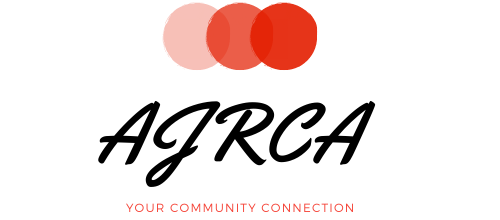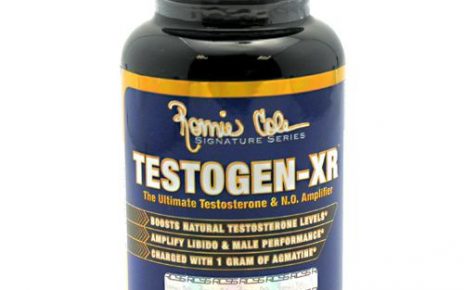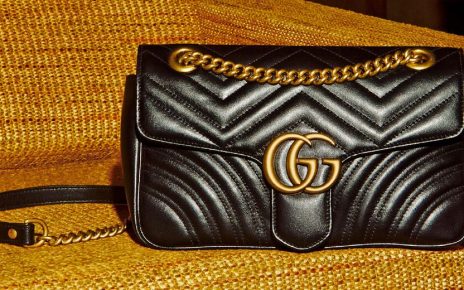I’ll bet when you see something labeled “all-natural” or “healthy,” you don’t think twice about adding it to the cart. Think again! These foods may not be so healthy after all.
Just because the word “health” is on the label or you bought it in a health food store doesn’t mean that it’s good for you.
Sponsored Links Crazy Muscles in 30 days?
Get all the benefits of real steroids, with none of the side effects.
Today You can build Your ultimate body in 30 days With 100% Legal Steroid Alternatives.
Read the labels on supposed health foods, and you will see that many of them contain the top ingredients to avoid: sugar (even high-fructose corn syrup!), sodium, preservatives, hydrogenated oils, and other chemicals that have been tainting the diets of developed countries for a generation or so.
Also, many of the foods we have always thought of as being healthy are proving to be almost as harmful as the foods they replace. A good rule of thumb is that the fewer the ingredients on the label, the better the product will be.
An example is soy products, on which the laudatory research is funded by soy-producing companies. Unfermented soy that is used in soy burgers, soy milk, and soy snacks could actually be the cause of a lower sperm count in men who consume it regularly.
The Mayo Clinic along with most of these testogen review ranks soy as a leading food allergen. The phytoestrogens that give soy its good reputation may also cause hormonal imbalances in both men and women.
If you feel like me that traditional bodybuilding and fitness nutrition can easily become boring, find here All Full of Flavours Over 200 Quick And Easy Muscle Building Recipes.
In Asia, where soy is eaten daily as either fermented (sauce) or whole (edamame), there are no health problems associated with the consumption. In the USA, however, highly processed, unfermented soy is in a variety of common foods.

Even the American Heart Association has rescinded its endorsement of soy as a heart-healthy alternative.
Read the labels before purchasing any healthy food or supposedly healthy food. There is no regulatory body governing what is marketed as “health food.”
Instead, consumers must rely upon the integrity of the manufacturers and the stores who sell these products to tell the buyer what is healthy. But are they motivated by altruism or profits?
Here are some of the un-healthful foods to avoid:
Cereals – Most off-the-shelf products are highly processed and have added sugar. Additionally, the manufacturing process often results in the production of cancer-causing acrylamide.
The more processed the cereal, the higher the levels of this toxic chemical. An alternative is to buy those found in the natural foods section of the market, but as always, read the label.
Juice drinks – The “bottled sunshine” variety of orange drinks have only small amounts of real fruit juice but are loaded with high-fructose corn syrup (HFCS), sodium benzoate, and sodium hexametaphosphate (also found in washing detergents).
Luncheon meats – These are most often loaded with preservatives and bad fats.
Protein shakes and bars – Scientifically engineered protein powder is often full of artificial sweeteners. Read the label, and when in doubt choose whey isolate, and use it to make your own smoothies and protein-based snacks.
Sports drinks – That devil, HFCS, appears yet again, along with brominated vegetable oil and oil of wood rosin. HFCS is a highly refined simple carbohydrate that the body doesn’t need.
Misleading words on food product labels
The marketers of health food products often use misleading words on their product labels. These words are interpreted by the public to mean “healthy food” when in fact they are only concealing the truth.
* Fat-Free – This may actually mean “without fat,” but it says nothing about the high sugar and chemical content that makes up for the missing flavor.
* Reduced Fat – These products tend to have fewer fats, but more simple carbohydrates.
* Low Fat – But what about their GI (Glycemic Index) or GL (Glycemic Load)?
* Sugar-Free – What artificial sweetener is in there to replace sugar? The negative effects of man-made sugar replacements can be worse than the real stuff.
* No Added Sugar – This claim can be made because the other ingredients already contain sugar.

* Diet – But why did the lab rats get cancer?
If “fat-free” or “low-fat” are descriptions of foods we should be eating, how come our ancestors who never had these products were not confronted with an obesity epidemic like that we see in the world today?
If fat-free is good for you, then jellybeans (that are fat-free bt pure sugar) are good for you, right?
Here is a list of some of the so-called healthy foods that are not always good for you to consume.
* Diet Soda – This sugar-free version of a carbonated beverage is loaded with artificial sweeteners, flavors, and coloring that is carcinogenic, according to research.
* Peanuts – Their name is misleading because they are a legume, not a nut. High in omega-6 fats, but not enough omega-3, may contribute to the imbalance of omegas (1:1 is ideal) rampant in the modern diet.
* Reduced-Fat Peanut Butter – The fats in the peanut butter aren’t the real problem with this spread; it’s the sugars.
* Corn Oil – The omega oils are 60:1 in favor of omega-6.
* Fat-Free or Reduced-Fat Salad Dressings – Out with the fat, in with the sugar or artificial sweeteners and flavors. Also, salad ingredients are oil-soluble, meaning fewer nutrients are absorbed with low-fat dressings.
* Yogurt cups (fruit at the bottom) – Loaded up with HFCS that doubles the amount of sugar. Processed yogurts also can have inactive cultures.
* Fruit Juices – These are generally sweetened (HFCS again). On top of that, you get no fiber in the juice as you do in raw fruit, leaving you hungry despite consuming a meal’s worth of calories.
* Dried Fruit – The same volume of calories and sugar with a fraction of the size of the fruit that was dried so we tend to overeat. Sugar overload.
* Canned Beans – Foods packed in sugary syrups will spike your blood sugar and insulin levels.
* Granola – Since it’s high in carbohydrates, often from HFCS, and very little nutrition, it’s better to skip this cereal altogether.
* Pasta – White flour pasta is a no-no; whole wheat or vegetable pasta is okay.
Some Fats Are Good For You
Too often, we associate the word “fat” with unhealthy, but nothing could be further from the truth. Saturated fats are loaded with antioxidants that help prevent and control some serious illnesses.
Incorporate these sources of healthy fats:
* Flaxseed and flax oil
* Avocados
* Olives and olive oil
* Seeds and nuts
* Fish high in omega-3 fatty acids (oils) like tuna and salmon
So there you have it. Rather than shopping based on the product packaging, flip it over and look at the label to ensure the foods you consume contain the ingredients you need to support your total health.




